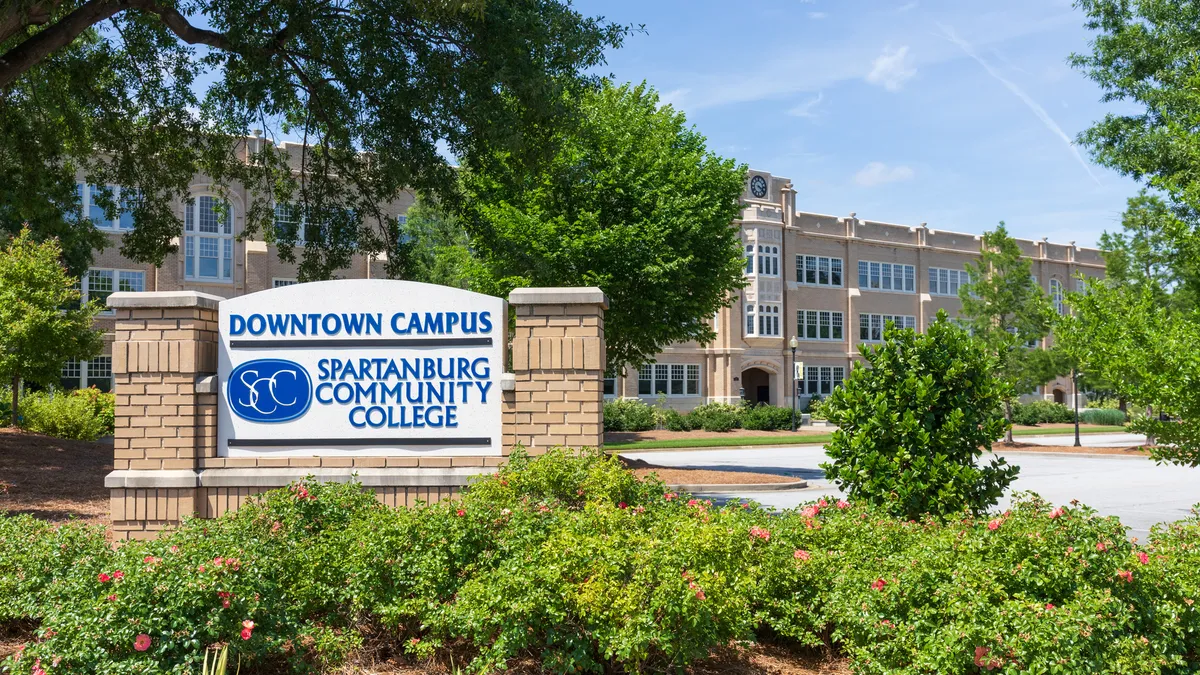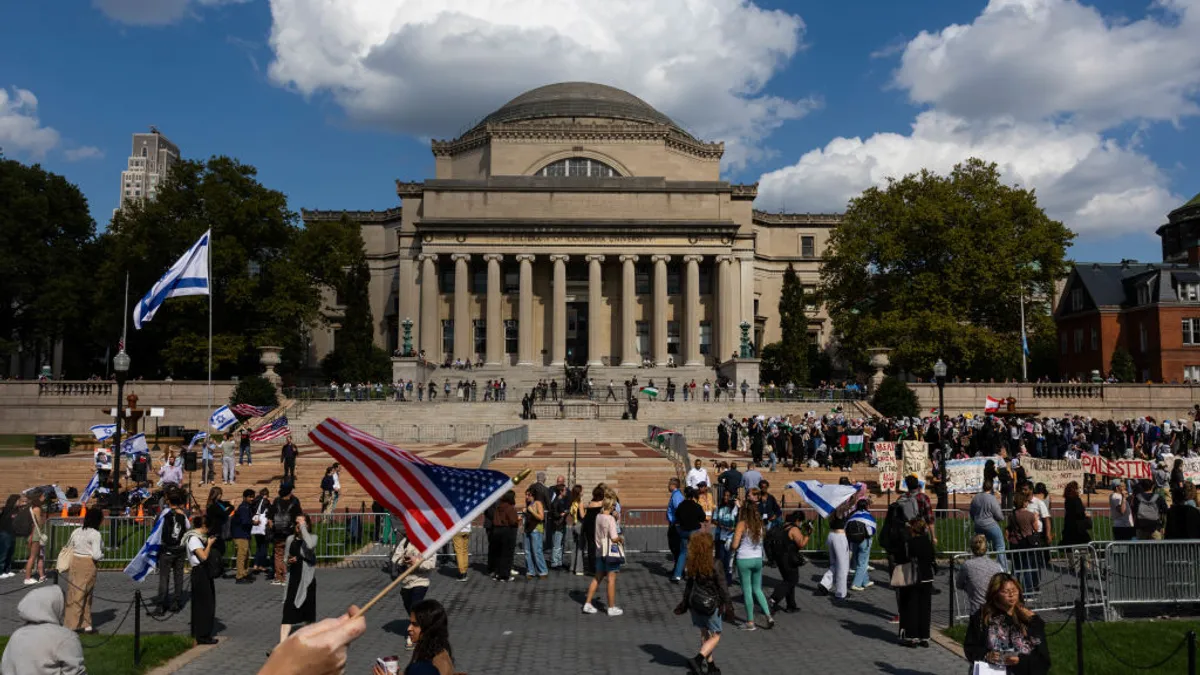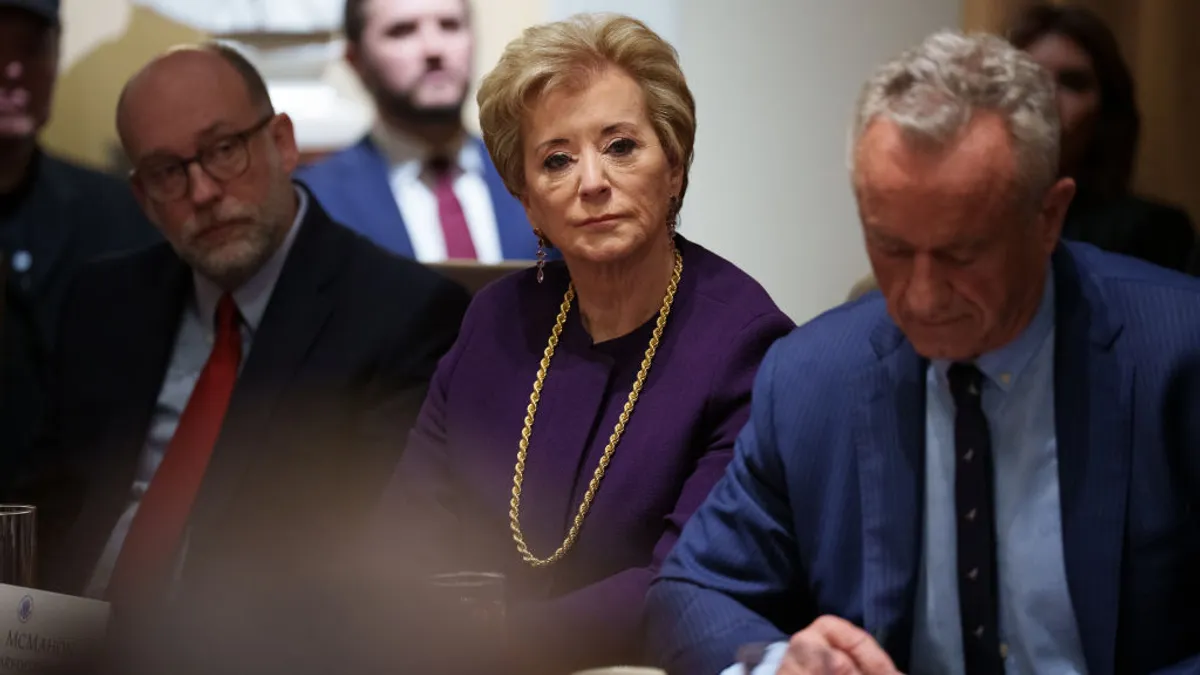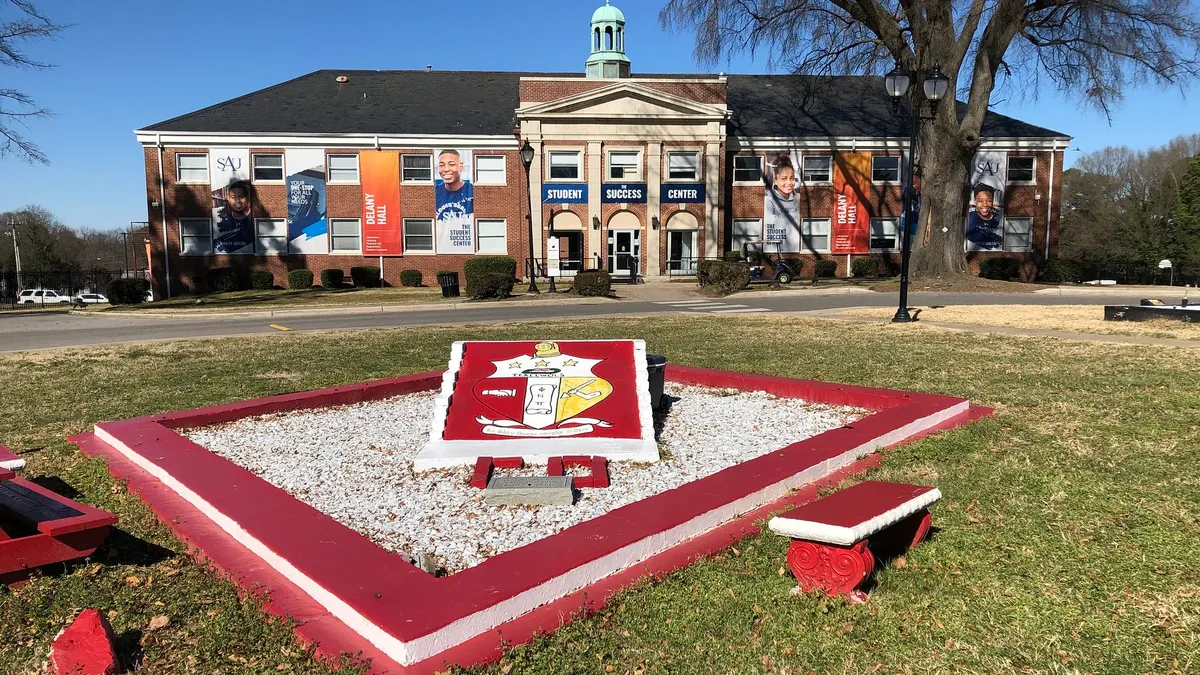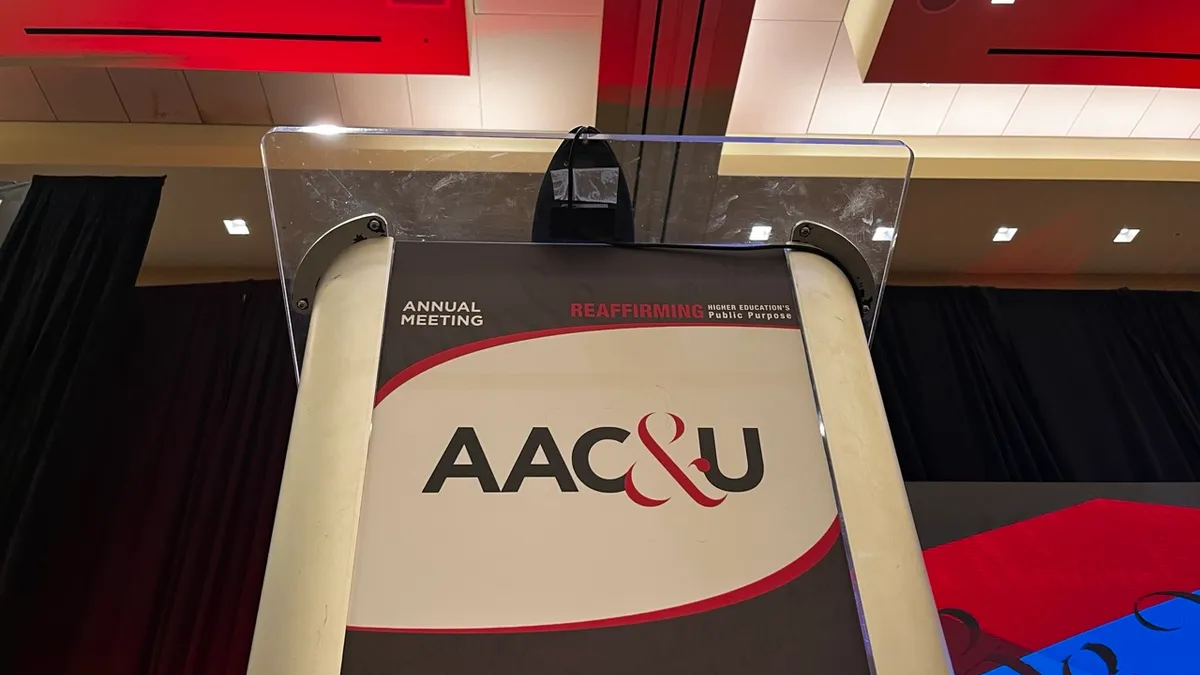Spartanburg Community College, in South Carolina, is under heavy scrutiny from faculty advocates and state investigators after its administration unilaterally dissolved the faculty senate earlier this year.
In mid-April, Spartanburg’s then-chief academic officer, Lisa Satterfield, dissolved the faculty senate just hours before members were scheduled to vote on a new policy forcing full-time instructors to be on campus for most of the work week, according to a Wednesday report from the American Association of University Professors.
Satterfield then replaced the faculty senate with a new governing body, called an academic council. But AAUP, a faculty group, said in its report that the replacement had only "a paper-thin notion of shared governance" and called the actions of the college's leaders autocratic.
In the wake of the faculty senate’s dissolution, Satterfield also knowingly sent news outlets false statements and requested surveillance of the former senate president's emails, according to a recent report from the state’s inspector general.
“This is not a story about a disgruntled faculty,” AAUP said in its report. “It is a story about the chilling of faculty speech and about abuses of power.”
The end of the faculty senate
The trouble began in March, when the administration approved a policy requiring full-time faculty to be on-campus 37.5 hours per week. Afterward, history professor and then-senate president Bruce Dillenbeck attempted to schedule an emergency meeting on April 10 to cast a vote on the policy.
In an email to a faculty mailing list, he acknowledged that a vote against the in-person work policy would put the faculty “in an adversarial position” against the administration, something “not to be taken lightly.”
But his message never arrived. Spartanburg's administration blocked it from being delivered, according to the AAUP report.
Months later, a university spokesperson told The Post & Courier that officials intercepted the email due to its "potential to further create a hostile work environment and give rise to the potential of the college being unable to fulfill its mission.”
Dillenbeck managed to schedule the meeting regardless. But Satterfield, who also served as vice president of academic affairs at the time, dissolved the faculty senate via email a few hours before it was set to convene.
She then replaced the senate with an academic council that had a smaller scope. She also contended that institutional decisionmaking on everything outside of curriculum falls solely with the president and the college’s governing board.
In her April 10 message, Satterfield said several faculty members had told her they were uncomfortable with a vote that would pit them against the administration. The administration admitted to taking action against the senate to avoid the vote against the in-person work policy, according to AAUP.
Despite Satterfield’s message and the email interference, some 60 to 70 faculty members still showed up for the scheduled faculty senate meeting, according to AAUP. Nearly all agreed to challenge the administration's decision to dissolve the faculty senate.
Two days later, the senators also voted to challenge the decision by having Dillenbeck file a complaint against Satterfield with the college's HR department. Satterfield currently serves as provost at Spartanburg.
Spartanburg did not respond to multiple requests for comment Thursday.
The aftermath
The new academic council faced problems from the jump, AAUP found.
There was “near-total opacity” around the election of council members, the report said. Some faculty said they felt pressured by their deans into being nominated for council seats and actively campaigned against themselves during the run-up to voting. They were elected anyway.
In one instance, a faculty member wanted to participate in the council but was told she was ineligible — prior to any bylaws being approved or shared.
“Everything came down from the top,” she told AAUP, referring to the administration.
Administrators made up almost 40% of the council's members, and the new structure denied representation to part-time faculty.
At the first meeting, administrators asked council members to approve bylaws that none of them had seen. Faculty had to get administrative approval to read them, according to AAUP.
Faculty also began to feel surveilled by the administration, AAUP found. Multiple members said their deans monitored their campus movements to enforce the in-person work policy.
In one instance, a campus police officer copied Dillenbeck on an email to Satterfield that seemed to reference reviewing camera footage of him for the administration. When Dillenbeck responded to the email, the officer said he had been asked to look into a student with a similar name, and Satterfield denied any knowledge of the request.
AAUP cited this “evident request that campus police use security camera footage to monitor the former faculty senate president” as one of Spartanburg’s abuses of power.
Prior to publication of its report this week, AAUP provided a copy to the administration.
Scott Talley, attorney for Spartanburg and state senator for the college’s district, replied:
"SCC faculty members are well represented in the Academic Council, which is the College’s deliberative body that provides a forum for faculty voices to be heard and considered. SCC leaders will address any faculty concerns when they are presented in this appropriate forum."
Further investigation
Spartanburg is also facing scrutiny from the South Carolina Office of Inspector General. The oversight agency found that Satterfield approved false statements about the college's decisions regarding the faculty senate to news outlets and the public, according to The Post and Courier.
She also "lacked candor" under oath when interviewed by the inspector general's office, its report found. It also said Satterfield attempted to find damning information about Dillenbeck through searches of his email, according to the publication.
The inspector general’s office did not make the report publicly available, instead directing inquiries to Spartanburg. College officials did not respond to a request Thursday for a copy of the report.
The inspector general did not find evidence the college violated the law or its internal policies, according to the newspaper.



